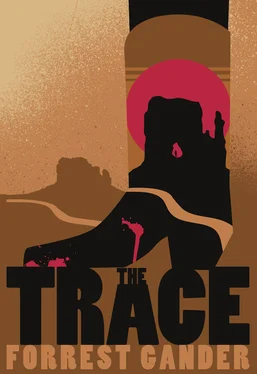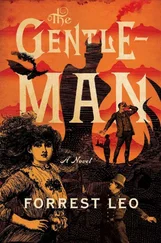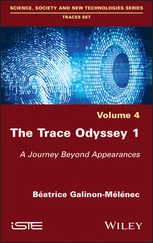Forrest Gander - The Trace
Здесь есть возможность читать онлайн «Forrest Gander - The Trace» весь текст электронной книги совершенно бесплатно (целиком полную версию без сокращений). В некоторых случаях можно слушать аудио, скачать через торрент в формате fb2 и присутствует краткое содержание. Год выпуска: 2014, Издательство: New Directions, Жанр: Современная проза, на английском языке. Описание произведения, (предисловие) а так же отзывы посетителей доступны на портале библиотеки ЛибКат.
- Название:The Trace
- Автор:
- Издательство:New Directions
- Жанр:
- Год:2014
- ISBN:нет данных
- Рейтинг книги:3 / 5. Голосов: 1
-
Избранное:Добавить в избранное
- Отзывы:
-
Ваша оценка:
- 60
- 1
- 2
- 3
- 4
- 5
The Trace: краткое содержание, описание и аннотация
Предлагаем к чтению аннотацию, описание, краткое содержание или предисловие (зависит от того, что написал сам автор книги «The Trace»). Если вы не нашли необходимую информацию о книге — напишите в комментариях, мы постараемся отыскать её.
The Trace — читать онлайн бесплатно полную книгу (весь текст) целиком
Ниже представлен текст книги, разбитый по страницам. Система сохранения места последней прочитанной страницы, позволяет с удобством читать онлайн бесплатно книгу «The Trace», без необходимости каждый раз заново искать на чём Вы остановились. Поставьте закладку, и сможете в любой момент перейти на страницу, на которой закончили чтение.
Интервал:
Закладка:
Invisible on the other side of the car, Hoa hooted.
“What?” Dale checked for her across the car roof. That was the most spirited she had sounded since lunch. But she was still squatting. There were reddish mountains far across the desert on her side. Along the road, rocks and clumps of ocotillo and sotol.
“You okay?” he called over the dusty roof. It had sounded to him like a happy hoot. Maybe she was ready to let the tension go.
“I burned my tush,” she explained, standing and buttoning her slacks, then scrambling into the car again. Dale got back in and closed the door. All the air conditioning had been sucked out and it felt like they were sitting upright in a coffin.
“The road’s scorching. Wow,” Hoa said. “When you get close you can hear the tar hissing.”
The buoyancy in her voice lifted Dale out of a dark hole. Maybe the mood was lifting. But he had been mulling over their weird exchange at lunch for hours. He knew there were awful strains inside them both. Each of them harbored a shameful, still unconfessed sense of responsibility for what had happened to Declan, for his accident and his lack of communication. Still, Dale had come to think that Hoa was right about some of what she’d said at lunch. That he engaged with people out of some default politeness that prevented him from distinguishing what mattered from what didn’t. That at some point, what he liked to consider his friendliness and generosity to others passed over into a lack of respect for his own time, his own needs. It was the kind of observation she must have noted long ago and lugged around for years, forgiving him, looking beyond it to his better qualities, but nevertheless seeing the evidence mount.
Had he wanted to be a friend more than a father to their son? Neither he nor Hoa had been able to figure out how to handle Declan. When he was charged with shoplifting, Declan, instead of being apologetic, was furious with them both for colluding with the lawyer, even though the lawyer, whom they hired to help, got him off with community service. Yet Declan could be sweet to strangers, to his grandparents. He once spent hours digging out a dead hedge in Dale’s father’s yard, planting forsythia and boxwoods. Declan would give any of his friends the shirt off his back. But in twenty years, Dale couldn’t think of a time when Declan had ever apologized for something. Declan held to the way he saw things, with a tenacity that repelled even the possibility of other points of view.
Now that Hoa had said what she said, had dumped the bad onto him, what was he to do? Should he have taken her critique so seriously? Lacerated by all that had gone down with their son, he knew that they had said things to each other in the last six months that weren’t true, things they didn’t really believe. Still, Dale felt that their dynamic had shifted along a hairline crack, and he wasn’t sure how to recuperate himself — not just in her eyes, but in his own — except over some long reconstructive period that was dreadful to contemplate.
Incident in La Esmeralda
In the early evening, they entered the township of La Esmeralda, eight miles from Sierra Mojada. The town’s name, spelled on the rusty once-reflective road sign was illegible, peppered with bullet holes. They passed a lonely, old hacienda that leaned toward La Esmeralda as though into a wind, its grand adobe walls the same toasted brown as the desert, its many windows and doors boarded up. As Dale drove on, Hoa looked back at it in the hard light. It reminded her of something from Pedro Paramo. Closer to the center of La Esmeralda, the hand-poured concrete street had been laid within inches of the walls and doors of the casas and tiendas. There were open lots of sand, nondescript buildings, and adobe houses. Dale drove toward what he figured was the central plaza, guided by the presence of a white tower, twice as tall as any other building, with a prison-green cupola. They both peered up through the windshield at it.
“Not many people out, are there?” Hoa said as Dale negotiated a traffic island dotted with dead shrubs and a sign that said Bienvenido a La Esmeralda. On the other side, there was an open tortilleria and the sound of clanking machinery, but no one visible inside.
“Pretty desolate.”
“We’re almost there?”
“I think Sierra Mojada’s only about ten minutes from here.”
They passed an empty dirt playground with swings and a red slide protected by shade trees, and came to an intersection with metal-studded speed bumps. A flock of some fifteen or twenty goats drifted diagonally across the street, no herder in sight. Two bleating goats, separated from the main group, came bolting anxiously from behind. Dale kept his foot on the brake and peered in both directions. There were cars and trucks parked along the streets, but not one was moving. Up ahead, a man in a dark, long-sleeved shirt turned the corner toward the tower with the cupola. Dale took his foot from the brake and turned at the same corner. He immediately swung the car to the side of the street, parking it behind a shiny red Dodge Ram with cattle racks in the bed.
“What’s up?” Hoa asked, sitting forward in her seat, taking in a crowd of people blocking the street ahead. At the fringes, toward the back, there were women holding the hands of children and small clusters of men talking to each other or hurrying to and from the larger crowd as though carrying messages. Everyone was staring at whatever was going on in the park beneath the tower. It was a clock tower, Hoa noticed, and under the green cupola, the silver hands on the stucco read 5:22.
“I can’t tell.” Dale turned off the car, opening his door. “Something big.”
Hoa came around the front of the car and stood with Dale, both of them wearing sunglasses, watching the crowd milling about. Three men driving a splintery field wagon behind them stopped and got out and hobbled their mules.
The little park was bordered by permanent concrete barricades separated by black wrought-iron benches facing the interior. All Hoa could make out, standing on her toes on the curb and peering through the crowd, were the shapes of trees and lamps in the park.
“Why don’t you ask someone?” Hoa said.
Dale took a few steps forward. Several bystanders looked his way as though they heard him coming. Taking off his sunglasses, he approached a short old man with a cane and bowed legs.
“Perdón, señor,” he said, his hands in his pockets. “Qué pasa?”
In a high, toothless Spanish, keeping his gaze averted from Dale, the elder replied that they were just now taking the bags away.
“What bags?”
A swarthy man with slicked back hair peered intimidatingly over the older man’s shoulder.
Dale stood beside the old man, looking with him toward the park.
“What’s in the bags?” Dale asked.
No one answered him. A ribby brown dog with hanging teats limped along the side of the street away from the tumult.
Suddenly the crowd moved as an organism with a swishing and clucking sound, creating a breach in itself at the entrance to the park just below the clock tower. A mule began to bray as though someone were flaying it. Into the clearing, a uniformed man wearing a red paisley bandana over his mouth strode purposively out of the park and stepped down from the curb onto the street. A stout man with thick curly hair and an air of authority, he was searching for someone or something. All eyes were on him. Dale glanced down the street in the direction of the rental car and the wooden field wagon. One of the drivers had also stepped into the street, and now he raised his hand to the sheriff as though he were taking a pledge before the hobbled mules. In the wagon seat, the second driver stood up and took off his hat and placed it over his chest.
Читать дальшеИнтервал:
Закладка:
Похожие книги на «The Trace»
Представляем Вашему вниманию похожие книги на «The Trace» списком для выбора. Мы отобрали схожую по названию и смыслу литературу в надежде предоставить читателям больше вариантов отыскать новые, интересные, ещё непрочитанные произведения.
Обсуждение, отзывы о книге «The Trace» и просто собственные мнения читателей. Оставьте ваши комментарии, напишите, что Вы думаете о произведении, его смысле или главных героях. Укажите что конкретно понравилось, а что нет, и почему Вы так считаете.












